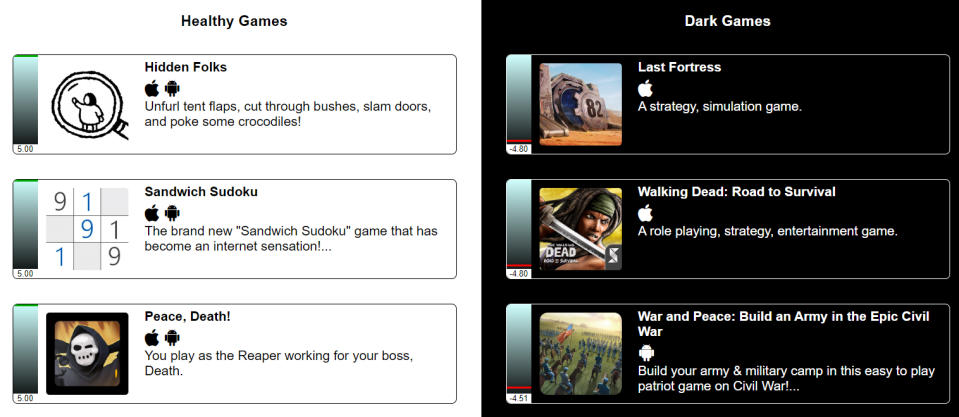Lawyer warns game developers about 'unlawful game design' as 'dark patterns' lawsuits rise

When I think of game design that might be "unlawful," I think of gambling, but things aren't so simple these days, warns Eric Weiss, a trial lawyer who defends companies from class action lawsuits and other disputes. The US Federal Trade Commission is on the lookout for so-called "dark patterns" in software and websites, and Weiss says that game developers should be very careful.
In 2022, the FTC defined dark patterns as "design practices that trick or manipulate users into making choices they would not otherwise have made and that may cause harm." Typically, that means somone spent money or signed up for something they didn't really want to because of a confusing or hostile user interface. Examples you may have encountered from online retailers include:
A warning that a product is almost sold out—"only two remaining!"—when there's actually plenty of stock
A timer that counts down the seconds remaining on a limited-time 20% discount, but just resets after hitting zero
A request to send you email updates that can only be rejected by agreeing to a ridiculous accusation like "No thanks, I don't care about children"
The games industry has already been docked for alleged use of dark patterns: The FTC landed a $245 million settlement with Epic Games after claiming that Fortnite's unintuitive UI constituted using "digital dark patterns to bill Fortnite players for unintentional in-game purchases."
What I wanted to know from Weiss, who spoke about dark patterns to game developers at GDC last week, is whether dark pattern lawsuits could go beyond store interfaces. What about gameplay design? For instance, if players of an MMO are encouraged to grind for a special limited-time item, and then a year later the MMO's developer decides to give that item away to everyone, were the players who stayed up all night in the first place "manipulated" and "harmed"? What if the developer genuinely changed its mind and hadn't intended to trick players?
Speaking to me ahead of his GDC talk, Weiss confirmed that I was asking the kinds of questions game developers should be concerned with.
"One of the identified dark patterns is grinding," said Weiss. "And that's 'making a free version of a game so cumbersome and labor intensive that the player is induced to unlock new features with in-app purchases.' So it's set up in a way that you don't need to make a purchase, but is it so difficult that the practical reality for the reasonable gamer is that they're going to have to make that purchase? Have they been deceived, or is it unfair in some way?"
Weiss, whose job it is to defend companies from these kinds of lawsuits, says that the rise in dark pattern lawsuits—from federal and state agencies and consumers—isn't a "sky is falling" situation for the industry, but that game makers should be "exceedingly careful." He advises developers to be honest and transparent—as you'd hope—but warns that what is and isn't a dark pattern is open to interpretation. "The standards are unclear," he said. "It's not prescriptive. It's very broad."
The website Deceptive Patterns has cataloged traditionally recognized examples of dark patterns, such as hard-to-cancel subscriptions and fake user reviews. (It also makes a case for using a term that doesn't sound like an omen issued by a council of wizards.) The dark pattern litmus test Weiss suggests to developers is to imagine how they'd come across if they had to explain their UI decisions to a judge. If you hid a disclaimer because hiding it resulted in more sales, you might be in trouble.

In everyday online usage, however, "dark pattern" can describe more than ecommerce marketing tricks. The website Dark Pattern Games, for example, warns players about mobile games that "use psychological tricks to manipulate you into becoming an addicted gamer." It defines four categories of dark patterns—monetary, psychological, temporal, social—and some of its examples of manipulation are things I'd consider normal aspects of playing videogames, such as growing attached to a high-level character or a collection of powerful items.
For the site's curator, there's a spectrum of darkness, and intent matters. A game with collectible items is "not instantly a dark pattern game," they say in an FAQ, but if it uses our natural urge to collect stuff to encourage unlimited spending on microtransactions, then it becomes harmful.
I haven't seen the term "dark patterns" used anywhere as broadly as that in a legal context: the lawsuits stick to the typical marketing and payment interface examples. "Trick" and "harm" could mean a lot of things, though, and I did discover an instance of dark patterns being used as part of a bigger legal argument that game developers are using psychological tricks to make players addicted to their games.

